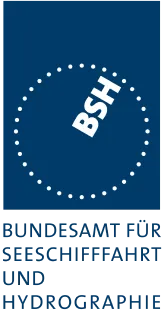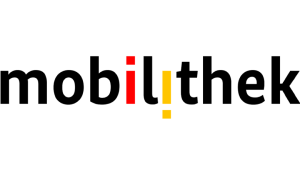Hackathon 9.-10. June 2023 in Hamburg
Without you, data is nothing
Your challenge for a better mobility
Register for DataRun 2023
Get to know challenges
Explore data packages
The DataRun 2023 was a great success! Many thanks to all participants!
If you would like to get to know the winning teams and their exciting ideas in more detail – the individual presentations in portrait form can be found here on the mFund site.
From maritime data to inclusive transport
The state and authorities collect a large amount of high-quality data. For example, data shows us what the weather will be like in the next few days, how many containers are in the port or where they are on their way. Thus, data helps to make road traffic safer, the use of buses and trains more predictable, mobility more inclusive and climate-friendly. However, all data only gain their value through people who link them meaningfully and beneficially.
Show us what you can do with data during the DataRun, the hackathon of the Federal Ministry of Digital and Transport. In four challenges, we will offer you access to selected data. Use your creativity, benefit from experience and team spirit and develop a first prototype. The best ideas for sustainable mobility have a chance to receive up to
Data overcomes barriers
your challenge for inclusive mobilityBackground
Inclusion, i.e. not excluding anyone and taking individual needs into account when shaping society, means more than physical accessibility. In the mobility sector in particular, along with the reduction of structural barriers, digital and social barriers play an important role. To overcome these, digital applications based on open data and interfaces are needed. They are indispensable for non-discriminatory mobility solutions. For example, raw data can be merged and refined to create a new type of wayfinding system, intelligent traffic lights or AI-supported road signs to protect vulnerable road users. With data, real participation becomes possible: for people with and without disabilities, in urban and rural areas, for old and young, for all genders and for people with a migration or refugee background. However, data not only connects, it also strengthens participation. Today, everyone can share data and thus actively contribute to improving public transport, for example.
In the face of these multifarious, seemingly unlimited possibilities, creativity and the cooperation of a wide range of actors is required. The role model function of (data) initiatives from pilot regions helps here. They can set an example and lead the way for others. In particular, those actors who have so far been less able to make extensive use of the potentials of digitalization, but who often have a particularly high demand for expansion of existing mobility offers, can also benefit from this.
Challenge
In this challenge, specific questions on inclusion and participation in the mobility sector are to be addressed. Innovative approaches are required that use and combine different data in order to contribute to inclusive mobility with new and better designed mobility offers. In addition to comprehensive traffic flow data, socio-structural data from surveys are also provided.
As an ambitious pilot region, the Hanseatic City of Hamburg will present current challenges and, being the host city, it will also take on the role of data provider. Transport associations will provide further data. Inclusion also means that as many cities and rural regions as possible throughout Germany are to benefit from the DataRun.
Sea data for the future
your challenge for maritime applicationsBackground
The Federal Maritime and Hydrographic Agency (BSH) is a higher-level federal authority and an executive agency of the Federal Ministry for Digital and Transport (BMDV). It is responsible for the departmental maritime research in the Federal Republic of Germany. Around 1,000 employees from over 100 professions work at the two offices in Hamburg and Rostock as well as on five ships. Marine surveys, wreck searches, oceanographic surveying, compilation of official sea charts, support for the upgrading and development of offshore wind energy in the German EEZ of the North Sea and Baltic Sea are among its tasks, as are the promotion, safety and monitoring of maritime shipping. As the German flag State administration and service provider for the maritime industry, the BSH supports the industry with permits, liability certificates, product testing, approvals and data. In application-oriented research, it works on the continuous further development and improvement of knowledge on the sustainable use and protection of the seas. The BSH's work supports the implementation of the goals of the Ocean Decade.
To work on and with the oceans, data with spatial and temporal reference from nautical hydrography, oceanography, marine geology and marine environmental monitoring is required. On the one hand, these are basic geographic data, which are comparable to onshore topographic data. On the other hand, special geographic data make thematic data from the respective subject areas with a spatial reference available.
Challenge
Geodata are the basis of information on the safety and security of maritime shipping and the protection and sustainable use of the seas. Statements on the protection of the population and of natural resources – for example in the context of spatial planning or the safety and ease of shipping traffic, the protection of the marine environment or the prevention of disasters – are no longer conceivable without a coordinated and meaningful application of geodata. However, special applications developed by specialist departments are often based on data that has been collected, processed and evaluated in isolation. Often, these applications no longer meet today's demands on the quality and processing of data. Therefore, a subject-specific application of geodata alone does not produce optimal results. By linking different specialist systems with their special tasks, it is possible to cover the information needs, to create synergies and to better answer open questions together.
We would like to see applications developed within the framework of the 5th BMDV DataRun that unite and connect data from different areas in such a way that questions can be answered and activities on and at the sea can be supported. Where it makes sense, data from outside the BSH (e.g. meteorological information from the DWD) should also be accessed.
Mobility needs you
Your challenge for innovative logistics in the transport sectorBackground
Data creates mobility: it simplifies commuting, travelling or the transport of goods. Mobility-related data offers us enormous potential for value creation, which can be used to develop innovative mobility applications that will make tomorrow’s mobility more sustainable, user-friendly and safer. Whether it is cross-modal logistics planning or intelligent traffic control – digital mobility applications require, in particular, the networking of information from multiple organizations. As the "facilitator" of this networking, it is the Mobility Data Space that brings together various data providers, data consumers and data processors on an application-specific basis.
Challenge
Logistics and traffic optimization within the framework of port operations in Hamburg
The goal of this challenge is to combine existing datasets to make logistics in the Port of Hamburg faster and more efficient. For this purpose, the Hamburg Port Authority (HPA) is making available various datasets. Furthermore, various Open Data datasets can be used, which contain, among other things, information on slot occupancy at the individual terminals in the Port of Hamburg.
By linking port area traffic flow data and HGV slot utilization data, for example, HGV idle times and flows of goods can be controlled in a more targeted and efficient manner. In this way, the transport volume can be significantly increased with the help of digital applications.
The aim of the challenge is to develop innovative solutions for logistics optimization based on sample data.
Open Challenge
Background
Making active use of existing mobility data, merging and refining them with additional data as well as generating, collecting and making new mobility data available is becoming more and more important. This applies to all actors from civil society, business, media, academia and politics. Therefore, the Federal Ministry for Digital and Transport (BMDV) has set itself the objective of significantly stepping up the provision of mobility data and their responsible use. Accordingly, the range of data platforms provided by the federal government is broad, and the mFUND innovation initiative already supports ambitious data-driven projects for the mobility of the future in a variety of ways. In order to make effective use of the enormous innovation and value creation potentials of existing data for the transport system of the future, the ingenuity and creative power of digital pioneers in business, academia and administration are required.
The aim of the mFUND is to use data innovations to prepare efficient, sustainable, competitive and future-proof mobility offers, contribute to the further digitalization of municipalities and authorities as well as make developments in civil society transparent and participation possible.
Challenge
This open challenge provides all participants with a particularly extensive experimental field to develop digital approaches which make mobility more sustainable, more efficient and better. In doing so, we look forward to great ideas that show how important access to and the availability of open data are for research and development.
FAQ
Here you can find the answers to the most important questions. If you have further questions or ones that are not answered, you can send an email to mFUND@bmdv.bund.de.
1. Organizational
1.1. What do you need to bring?
Participants are required to bring their own laptops and any additional hardware they may need. Additionally, if necessary, participants must bring sleeping bags and anything else they need for a long night. This may also include any own data.
1.2. Is there food and accommodation provided?
We will take care of food (dinner, snacks, breakfast, and lunch). We will also provide enough coffee and Mate. Separate accommodation is not available..
1.3. Is there an age limit and do I need programming knowledge?
The minimum age for participation is 18 years. Of course, it is advantageous if you have programming skills. But graphic designers, businesspeople, and other interested parties are also welcome! The more diverse strengths and abilities are in a team, the more comprehensive the solution developed can be.
1.4. Is there a selection process?
No. With registration, you are participating in the 5th BMDV DataRun. Please note that the number of participants is limited to 100. If necessary, there will be waiting list.
1.5. Will travel expenses be reimbursed and accommodation be provided?
Travel expenses will not be reimbursed. Participants must organize their own accommodations.
1.6. Can I apply as a team?
Yes. If you want to apply as a team, simply indicate your team name in the registration form. Please note that with team applications, all team members must register individually and each member must meet the minimum age requirement. Participants without a team can participate in the team-building activity on Friday afternoon or participate as individuals.
2. Competition
2.1. What themes must be addressed during the hackathon?
There are several challenges to choose from, Of course, you can choose your favorite to work on. You can find the challenges further up on this website.
2.2. What do the data sets that need to be processed look like?
Public and non-public data will be made available, which you can use to develop creative and innovative solutions. Over the next few weeks, numerous data sets will be linked on this website. You will also find supporting material and documentation on the data and interfaces. All open data will also be searchable in the Mobilithek. Of course, you can also use data from other sources or bring your own data.
2.3. Can I present a solution that was created before the DataRun?
Please do not. Even though we will not examine your programming code in detail, the event is about fair competition under equal conditions. Therefore, our jury will try to assess whether what you present can be implemented within the given time frame. If you make your code available on Git or a similar platform, it makes it easier for everyone to understand what you have done.
2.4. What happens to my idea after the hackathon?
The BMVI DataRun is an event that takes place in connection with the mFUND research program. After the event, the BMDV will provide constructive feedback to all presenters and discuss with you whether and how you can further develop your idea with financial support from BMDV. Those who would like to present their idea in more detail and have used data from the Mobilithek can write about it in the blog there. Send a short text and a few screenshots to mobilithek@bast.de.
2.5. What are the Mobilithek and Mobility Data Space?
The Mobilithek is a platform for mobility providers, infrastructure managers, transport authorities and information providers to exchange digital information. It is the national access point for mobility data and a free service provided by the Federal Ministry for Digital and Transport (BMDV). Above all, it makes available data required on a statutory basis and open data. Among other things, it provides timetable data, real-time traffic information and information on rental bike locations.
The Mobility Data Space (MDS), which is organized on private enterprise lines, is a data space for the mobility sector, which allows data to be exchanged on a voluntary basis. In the MDS, data that requires special protection can be shared peer-to-peer in a safe and transparent manner while maintaining data sovereignty.
3. Location
3.1. What is the Federal Maritime and Hydrographic Agency?
Around 1,000 employees from over 100 professions work at two offices in Hamburg and Rostock as well as on five ships of Germany's central maritime authority. The promotion, safety and monitoring of maritime shipping are just as much a part of the tasks as marine surveys, wreck searches, sea surveying and the production of official nautical charts, as well as the approval and monitoring of offshore wind farms. As the German flag state administration and as a service provider, the BSH supports the maritime industry with permits, liability certificates, product testing, approvals, water level and ice forecasts and the provision of data such as sea state data in offshore wind farms and technical information on impulse noise in the sea. With the Navigation and Communication Systems Laboratory, a test environment is available for complex navigation and communication systems. In its application-oriented research, the BSH is working to continuously deepen knowledge and improve the compatibility of marine protection and use. The establishment of sound measurement networks in the North Sea and Baltic Sea and the development of technologies for measuring ship emissions in the air are part of this.
3.2. How can I get there?
BSH Hamburg,
Link to travel options, parking, accessibility (PDF)
How to get to the BSH barrier-free by public transport (PDF)
3.3. How does the on-site registration process work?
Accreditation for the BMDV DataRun starts on Friday 9th of
3.4. Is there something to win?
Project ideas that are awarded by the jury have the opportunity to directly apply for funding in a special category of mFUND. After detailed consultation and an assessment by the Federal Ministry for Digital and Transport as well as the project management organization, you can receive up to 3 million euros in the event of a positive funding decision. These financial resources must be used for research and further development of the project idea presented at the DataRun. You can find more information here.
3.5. How does the presentation of the ideas work?
On Saturday afternoon from
3.6. How are the ideas evaluated?
All ideas are reviewed by the competent five-member expert jury. The ideas should be innovative, based on at least two data sources, and, of course, use the data provided during the DataRun. The evaluation also takes into account the level of development of your idea. Bonus points are given for providing the results in the form of open data and a digital presentation of the results (e.g. as an animation or dashboard) at the end of the DataRun.
Our Data
The data packets for the challenges are provided to us by partners.
You can find more information about the data and our partners here.









